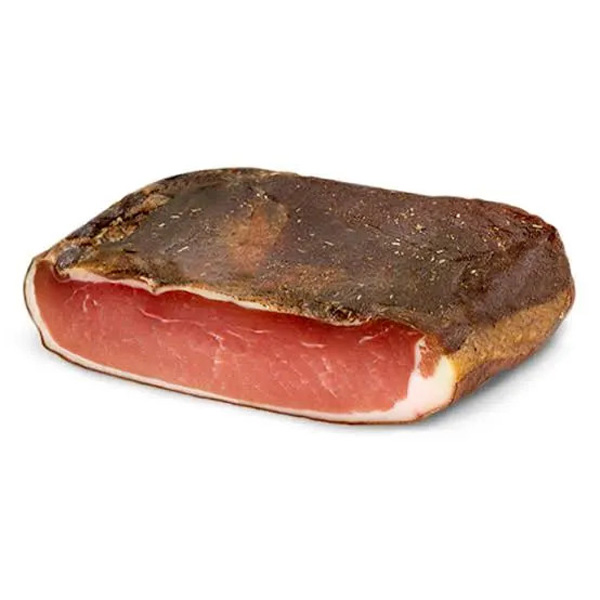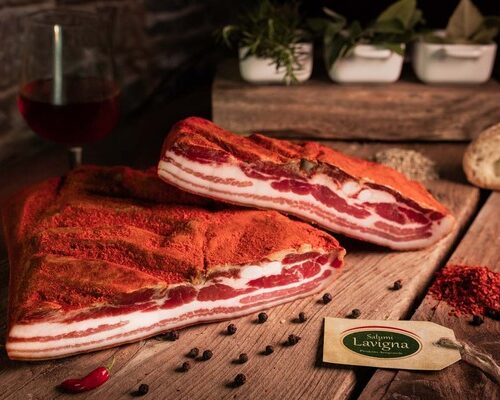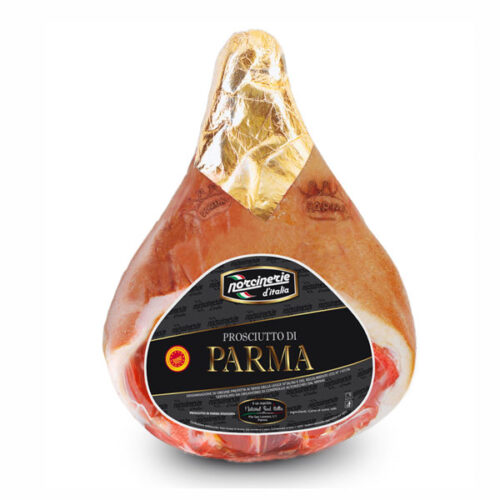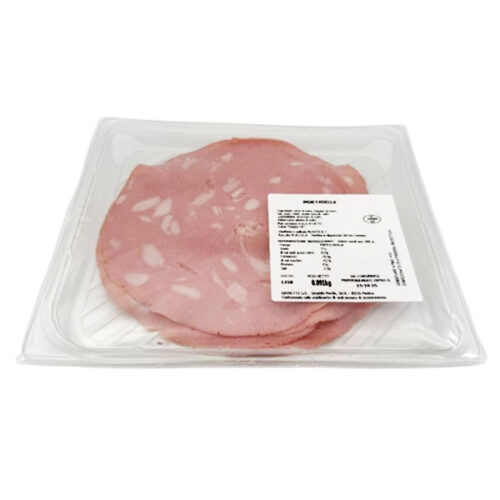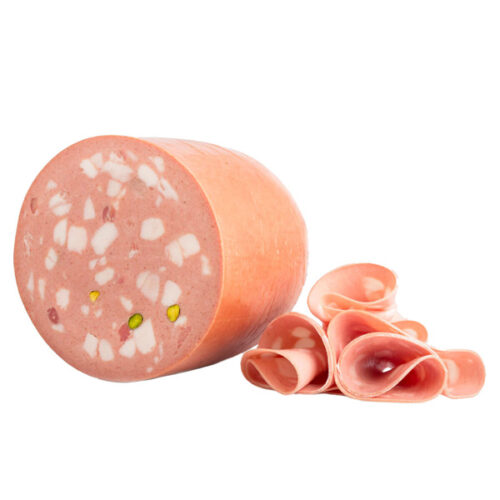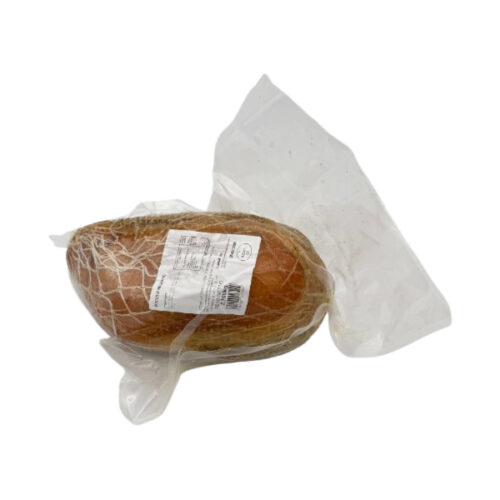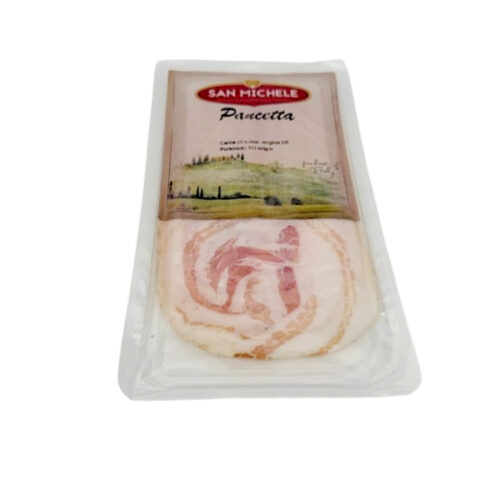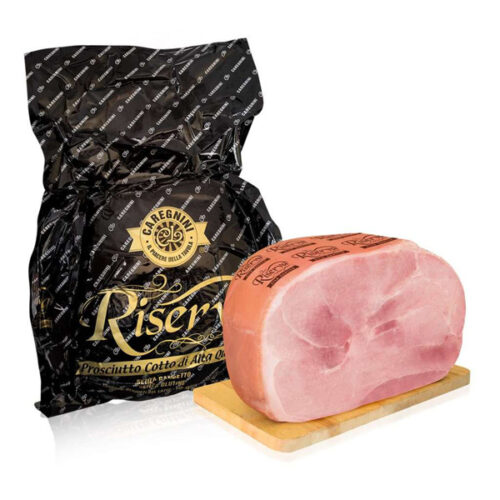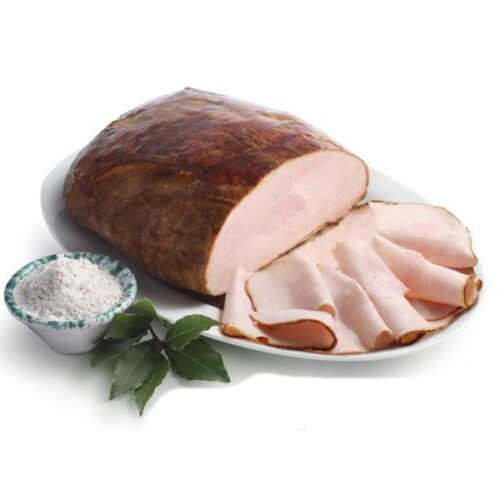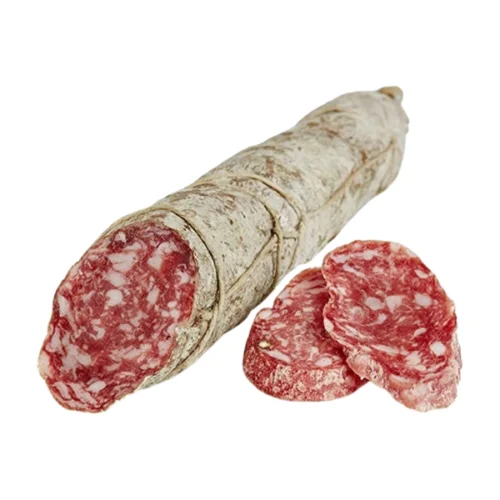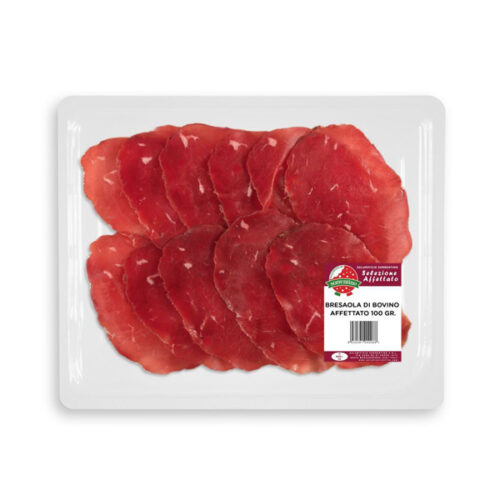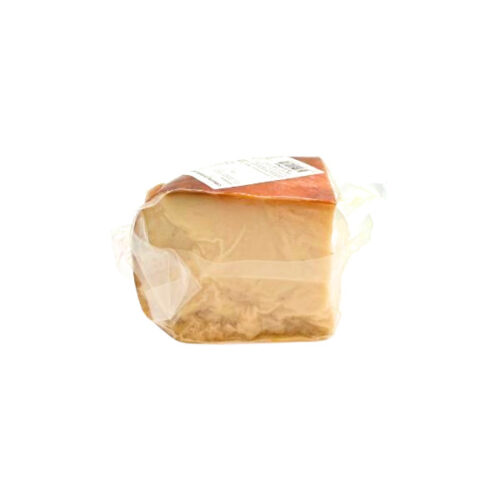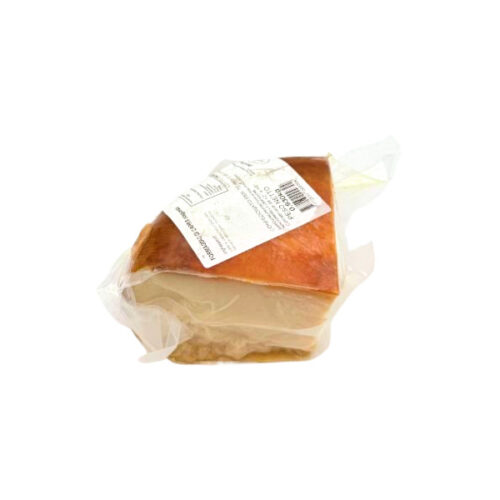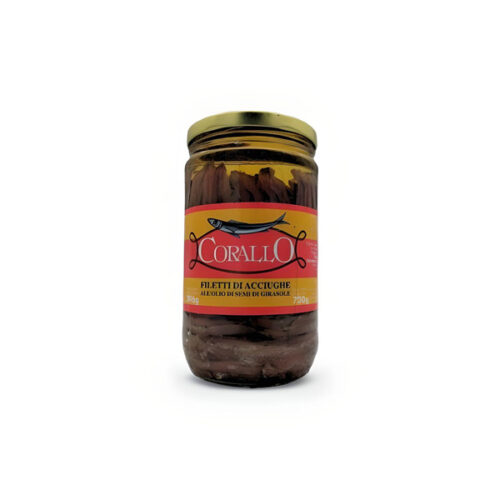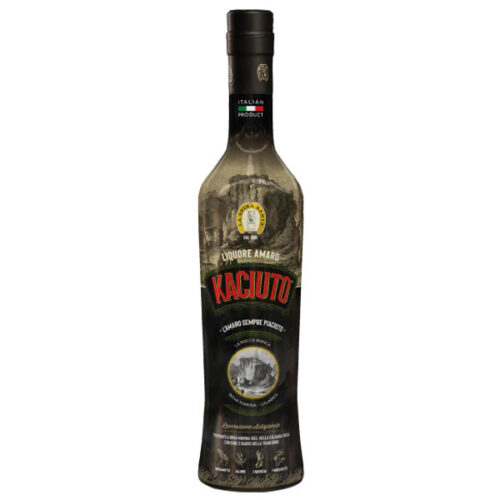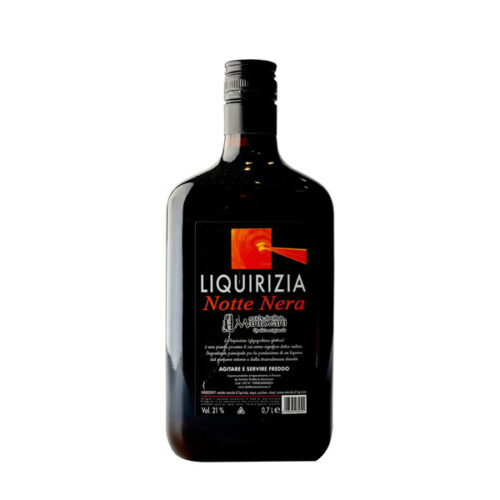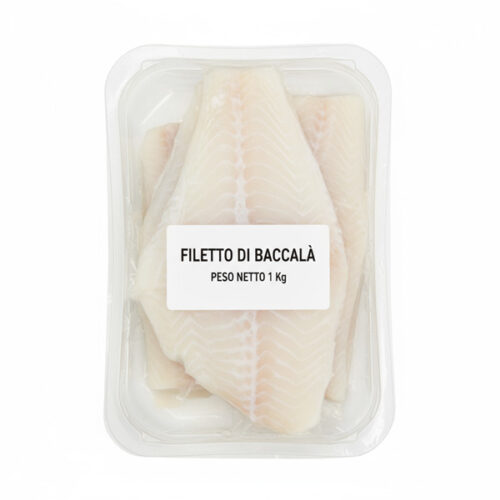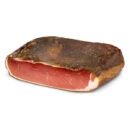Description
Italian Speck the Excellence of South Tyrol PGI
Italian Speck represents the masterpiece of South Tyrolean charcuterie, a smoked dry-cured ham that encapsulates five centuries of Tyrolean tradition. Recognized with PGI certification since 2005, this excellent cured meat is born from the perfect union of Mediterranean aging and Northern European smoking, creating a unique product in the Italian gastronomic landscape.
Distinctive Features
Italian Speck is distinguished by its characteristic rectangular shape and the brown color of the outer crust, a result of the expert smoking process. Its uniqueness lies in the perfect balance between the intense flavor of smoking and the delicacy of aging, following the Tyrolean golden rule: “little salt, little smoke, lots of fresh mountain air”.
- External appearance: Brown color with natural rind
- Appearance when sliced: Intense red with white-pinkish parts
- Consistency: Elastic, not sticky in the lean part
- Aroma: Notes of smoke, spices, and aromatic herbs
- Flavor: Intense and flavorful, never excessively salty
PGI Certification and Territory
The South Tyrol Speck Consortium oversees the production of only 29 certified producers, ensuring the authenticity and quality of the product. South Tyrol/Alto Adige, with its Alpine climate and Austro-German traditions, offers ideal conditions for producing this excellent cured meat.
PGI Production Areas:
- South Tyrol/Alto Adige: Mountainous territory between 200 and 2000m above sea level
- Climatic conditions: Dry and fresh mountain air
- Tradition: Heritage of Austro-German culinary culture
Traditional PGI Production Process
Raw Material Selection:
- Fresh pork legs with minimum weight of 10.5 kg
- Sourced from heavy Italian and European pigs
- Rigorous quality and freshness controls
Certified Processing Stages:
- Deboning and Trimming: Characteristic rectangular shape
- Traditional Seasoning: Rosemary, juniper, bay leaf, salt, black pepper
- Curing: Gradual penetration of flavors
- “Cold” Smoking: Max temperatures 20°C with non-resinous wood
- Controlled Aging: Average 22 weeks (20-32 depending on weight)
- Alternating Smoking/Drying: In fresh mountain air
Speck vs Prosciutto Crudo: the Differences
| Characteristic | Italian Speck | Prosciutto Crudo |
|---|---|---|
| Process | Smoking + Aging | Aging only |
| Calories per 100g | 303 kcal | 220 kcal |
| Proteins | 30.7g (higher protein) | 26g |
| Shape | Rectangular | Leg-shaped |
| Flavor | Smoked, spiced | Sweet, delicate |
| Aging | 22 weeks | 12-24 months |
| Tradition | South Tyrol/Tyrolean | Central-Southern Italy |
Nutritional Values per 100g
- Energy: 303 kcal / 1268 kJ
- Proteins: 30.7g (second most protein-rich cold cut after bresaola)
- Total fats: 20g (of which saturated 8g)
- Carbohydrates: 1.2g
- Sodium: 1557mg
- Potassium: 484mg
Ideal for high-protein and low-carb diets
Professional Storage
Vacuum-Packed Speck:
- Storage: several months in a cool, dark place
- After opening: consume quickly
- Ideal temperature: 4-8°C
Unpacked Speck:
- Refrigerate wrapped in a damp cloth
- Between two deep plates for transpiration
- Away from foods with strong odors
- Periodic check for natural mold formation
Practical Tips:
- Speck doesn’t spoil easily, it can only dry out
- Natural white mold: brush off or cut first slice
- Before consumption: let it breathe for 1 hour at room temperature
Tyrolean Culinary Tradition
Iconic Dishes of South Tyrolean Cuisine:
- Dumplings made with stale bread and speck cubes
- Served in hot broth or with melted butter
- Symbolic dish of Tyrolean cuisine
Spätzle with Speck:
- Fresh Tyrolean pasta with sautéed speck
- Local cheese and golden onions
- Authentic Austro-German tradition
Savory Strudel:
- Puff pastry with speck and Marienberger cheese
- Savory variant of the classic sweet strudel
Modern Culinary Uses
Appetizers and Aperitifs:
- Thinly sliced on charcuterie boards
- Bruschetta with ricotta and aromatic herbs
- Roll-ups with cream cheese
First Courses:
- Creamy risottos with speck and pumpkin
- Pasta with speck, cream, and peas
- Potato gnocchi with speck
Main Courses:
- Pan-seared speck (brief cooking)
- Savory pies and quiches
- Gourmet pizzas (added at the end of cooking)
Food and Wine Pairings
Local Wines:
- Schiava: The quintessential South Tyrolean native grape variety
- Pinot Noir: Intense bouquet that balances the fats
- Gewürztraminer: Complementary spicy aromas
- South Tyrolean Pinot Blanc: Freshness and minerality
Ideal Cheeses:
- Mild Asiago: Balanced flavor
- Tomino: Creaminess that contrasts the saltiness
- Fresh ricotta: Sweet-savory balance
- Robiola: Creaminess and delicacy
Traditional Breads:
- Tyrolean rye bread: Classic accompaniment
- Schüttelbrot: South Tyrolean crispy bread
- Mountain dark bread: Authentic flavors
Gourmet Pairings
Ingredients that Enhance Speck:
- Pumpkin: Sweetness that balances the saltiness
- Potatoes: Neutral base that enhances flavors
- Apples: Contrasting freshness and acidity
- Cucumbers: Crunchiness and freshness
Certifications and Quality
✅ PGI Certification since 2005
✅ 29 certified producers by the Consortium
✅ Rigorous production regulations
✅ Quality controls at every stage
✅ Complete traceability from raw materials
✅ Authentic Tyrolean tradition
Traditional Recipe: Speck Dumplings (Canederli)
Ingredients (serves 4):
- 300g stale Tyrolean bread
- 200ml milk
- 100g diced speck
- 2 eggs
- 50g grated cheese
- Parsley, nutmeg
- Flour as needed
Preparation: Soak the bread in milk, add sautéed speck, eggs, cheese, and seasonings. Form dumplings and cook in boiling broth for 15 minutes

